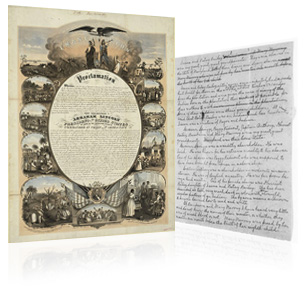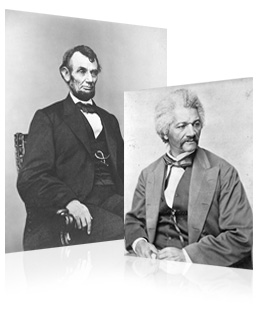What can teachers do to improve students’ comprehension of content-area text?
Page 9: Comprehending Content-Area Text
In addition to vocabulary knowledge, understanding content-area text requires strong reading comprehension. Reading comprehension comprises many different skills, including the ability to cite textual evidence and to consider multiple perspectives. When students combine a reliance on textual evidence and an awareness of perspective taking, they gain a deeper understanding of a text passage than when they simply focus on general impressions or surface-level facts. In fact, students must learn to use evidence from what they’ve read to analyze the alignment of their personal perspectives with those of one or more authors. Let’s explore the importance of both textual evidence and perspective-taking in more depth.
Textual Evidence
 Standards for college and career readiness emphasize text-dependent analysis. Such analysis requires students to rely on the information they read rather than on their personal experiences or prior knowledge. An example of this expectation is Anchor Standard 1 from the Common Core State Standards for Reading:
Standards for college and career readiness emphasize text-dependent analysis. Such analysis requires students to rely on the information they read rather than on their personal experiences or prior knowledge. An example of this expectation is Anchor Standard 1 from the Common Core State Standards for Reading:
text-dependent analysis
The process of gaining a thorough understanding of information, details, concepts, and perspectives through a careful reading of text
Read closely to determine what the text says explicitly and to make logical inferences from it; cite specific textual evidence when writing or speaking to support conclusions drawn from the text.
Students who can answer questions, write, or talk about a text without using textual evidence have less motivation to try and comprehend that text. For example, compare the two assignments below
Assignment A
After reading the passage on global climate change in your textbook, answer the following questions:
- List 1–2 extreme weather events that have affected our community over the last five years.
- Do you think these events were caused by global climate change?
- How did you feel about the ways in which these events affected our community?
- What suggestions do you have to prepare for future events like these?
Assignment B
After reading the passage on global climate change in your textbook, answer the following questions:
- Compare the methods of global climate change detection that used oceanographic, glacial, and varves analyses in the early twentieth century. Include the major findings of each as well as methodological weaknesses.
- Describe how changes to these methodologies in the late twentieth century affected theories of global climate change.
- Your text states, “Even with the best scientific data available, people see only what they believe to be true.” Do you agree with this statement? Justify your response, citing information from the passage.
Although the questions from Assignment A might tap into students’ prior knowledge—something that does support comprehension—students would not have to cite textual evidence from the passage in order to complete the assignment. Students’ responses might demonstrate creativity, but even an especially creative and well-articulated response could be crafted with little basis in the curricular materials about climate change. In contrast, they would need to not only read but also to understand and be able to cite from the passage to answer the questions from Assignment B.
Perspective-Taking
 Both the reader’s and author’s perspectives influence reading comprehension. Whereas opinion responses rely heavily on one perspective—the student’s—it is just as important for skilled readers to consider alternative perspectives. As students advance through the middle grades, college and career readiness standards reflect a progression in skills associated with perspective-taking. As can be seen in the Common Core State Standards for Reading: Informational Text, student should be able to:
Both the reader’s and author’s perspectives influence reading comprehension. Whereas opinion responses rely heavily on one perspective—the student’s—it is just as important for skilled readers to consider alternative perspectives. As students advance through the middle grades, college and career readiness standards reflect a progression in skills associated with perspective-taking. As can be seen in the Common Core State Standards for Reading: Informational Text, student should be able to:
- Grade 6: Compare and contrast one author’s presentation of events with that of another (e.g., a memoir written by and a biography on the same person).
- Grade 7: Analyze how two or more authors writing about the same topic shape their presentations of key information by emphasizing different evidence or advancing different interpretations of facts.
- Grade 8: Analyze a case in which two or more texts provide conflicting information on the same topic and identify where the texts disagree on matters of fact or interpretation.
Research Shows
- Teaching students to analyze historical evidence and perspective has been found to improve both their advanced literacy skills and understanding of history.
(Kucer, 2010) - Awareness of the source of scientific information or of the narrator of a story is related to students’ comprehension of informational science texts and narrative prose, respectively.
(Kucer, 2010)
On the next pages, you will learn a structured approach to citing textual evidence and examining the reader’s and author’s perspectives—the Anticipation-Reaction Guide.